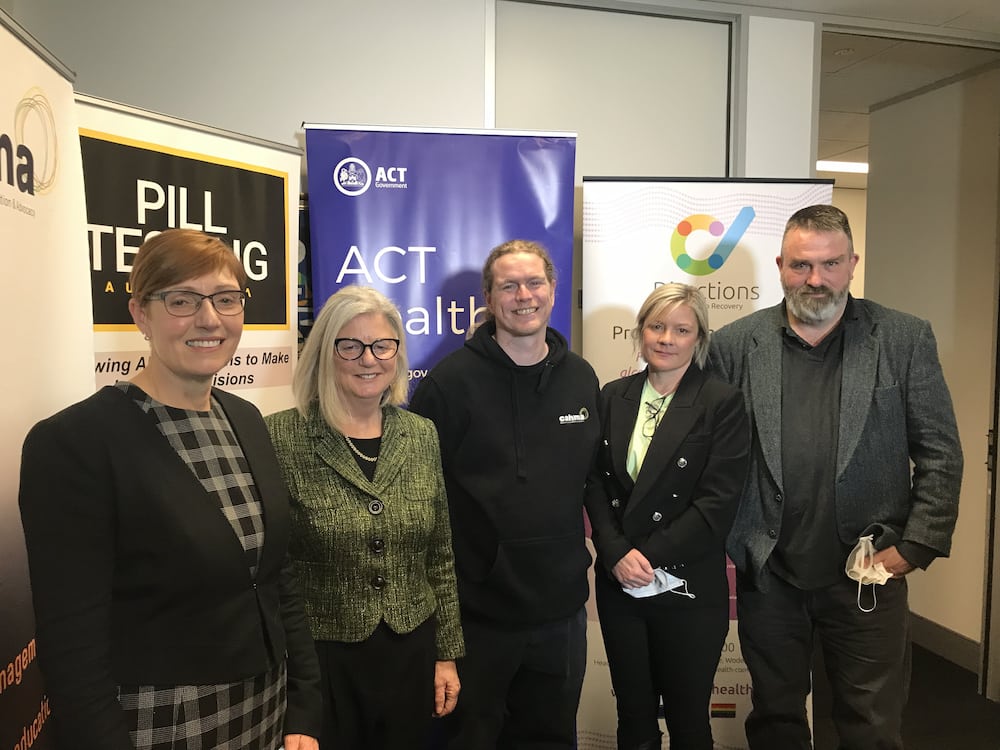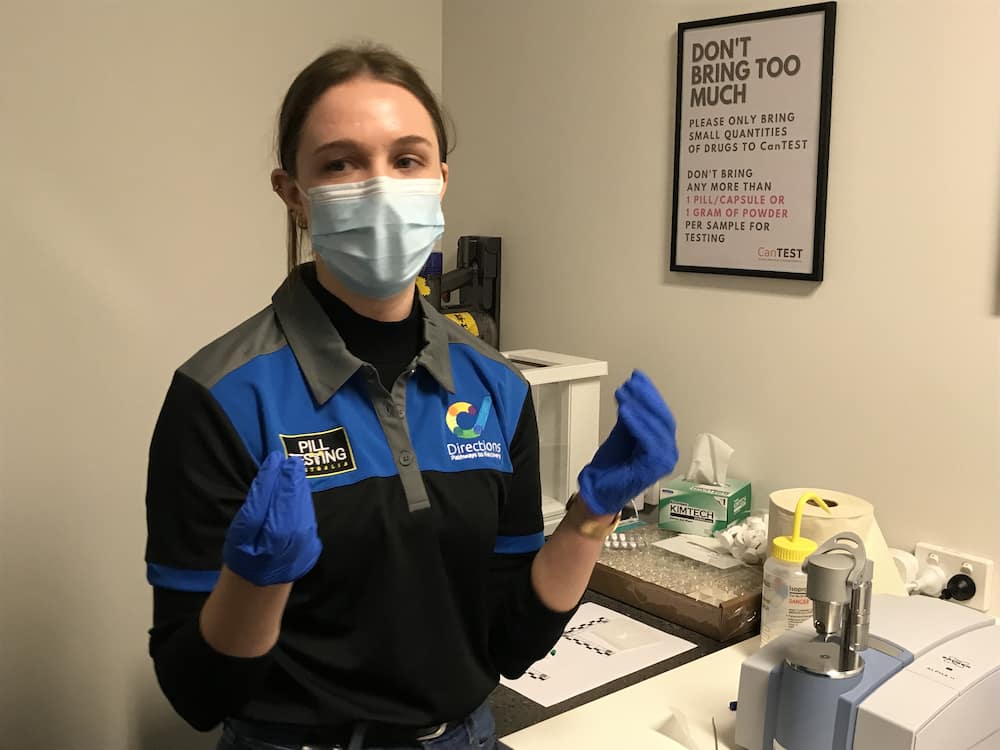Australia’s first fixed-site health and drug checking service opens in Civic this week – and Jen Ross-King believes such a pill-testing service could have helped save her daughter’s life.
Nineteen-year-old Alex died from an MDMA overdose (methamphetamine, or ecstasy) at a Sydney festival in 2019. Pill-testing, her mother thinks, would have helped her know something was seriously wrong and to seek assistance – but the NSW government opposed drug testing, arguing that it encouraged drug use.
Fearing being caught by police with drugs – an offence in NSW that could lead to a two-year prison sentence or a $2,200 fine – Alex Ross-King had swallowed three pills. Hours later, the desperate young woman had tried to use her phone to find information about the drugs she had taken.
“But she didn’t know where to go … and she certainly couldn’t have come to me because I couldn’t have helped her, either,” Ms Ross-King said.
“Honestly, so many parents out there are ill-equipped to answer their questions, to have a decent conversation with young people about the effects of drugs, what drugs are even out there, what an overdose looks like. We’re not equipped to do that. We’ve been told all our lives: Just say no. We don’t talk about it.”
That, she believes, is why the launch of the CanTEST Health and Drug Checking Service is so important. The free and confidential service tests pills, but also gives advice about the harms of drugs.
“This service … provides an insight for these young people to make a more informed decision and choice about what they’re going to do,” Ms Ross-King said. “Preferably they don’t do it at all, but we know that’s not the case, and that people are going to take drugs.”
The ACT Government-funded service, at 1 Moore Street, is operated by Directions Health, in partnership with the Canberra Alliance for Harm Minimisation and Advocacy (CAHMA) and Pill Testing Australia.

ACT health minister Rachel Stephen-Smith emphasised that the government did not endorse taking illicit drugs. “But we know that people will take them, irrespective of our advice.
“Services like these … could mean a young person who makes a mistake, who is experimenting, may not have their life cut short.”
Chemical analysts will identify the two main ingredients of drugs and pills given to them, and whether they have any unwanted effects. They will also detect any unexpected, potentially dangerous substances, such as fentanyl, an opioid added to heroin and cocaine that has caused several fatal overdoses overseas.
“This is part of a push to get in front of the curve, in terms of making sure that we’re looking at the drug supply proactively, and informing our community about the dangers,” Chris Gough, executive director of CAHMA, said.
Qualified alcohol and other drug workers, peer educators from CAHMA, and nurses will provide advice about harms associated with drug use and how they can reduce that harm.
“[Young people] are stopping for a moment, they’re getting more information, they’re having a conversation with someone who is credible, not their parents, and saving their lives,” Ms Ross-King said.
Bronwyn Hendry, CEO of Directions Health Services, said pill-testing was often young people’s first opportunity to discuss drug use in a non-judgemental way with a health professional and to be given evidence-based advice about how they could help protect their health and reduce their risk.
“We all know that illicit drug use is not a safe activity,” she said. “However, the more we can inform people about what is in substances they are considering taking, that way they can reduce the harm and they can also help protect their health.”
CanTEST offers more than drug testing; it also provides drop-in nurse consultations and advice about general, mental, and sexual health.
“It is an integrated service that people can address any health issue that they may have,” Ms Hendry said.
The clinic will be open on Thursdays from 10am to 1pm, convenient for people working in Civic, and on Fridays from 6pm to 9pm, convenient for people going to nightclubs and parties.
The service will not collect personal details, and any information recorded about drugs will be deidentified. Because the clinic is in the City Community Health Centre, visitors cannot be identified as drug users. Nor should clients fear getting in trouble with the law; the police support the pilot as a harm reduction strategy.
CanTEST builds on pill testing at Groovin the Moo festivals in 2018 and 2019 and in Garema Place, Civic – the first government-approved pill testing service. An ANU evaluation found the trial reduced potential harm, especially for people with limited drug-taking experience, Ms Stephen-Smith noted. Most people decided not to take drugs if testing showed they were contaminated, Mr Gough said.
The service will operate for a pilot period of six months, into early summer. Australian National University researchers will evaluate how the service is run, how it is perceived by participants, its impact on the Canberra community, and whether it provides health authorities with greater insight into the current drug market and the most popular drugs that are circulating in the community.
“The need for quality evidence on illicit drugs content is a significant public health priority,” said Associate Professor Anna Olsen, from the ANU Medical School.
Dr David Caldicott, of Pill Testing Australia, said the legislators had been courageous in putting together a system based on science, “which is nigh-on unheard of in Australia”.
“This process puts [the ACT] at the forefront of evidence-based policy in drugs research, reducing harm,” Dr Caldicott said.



